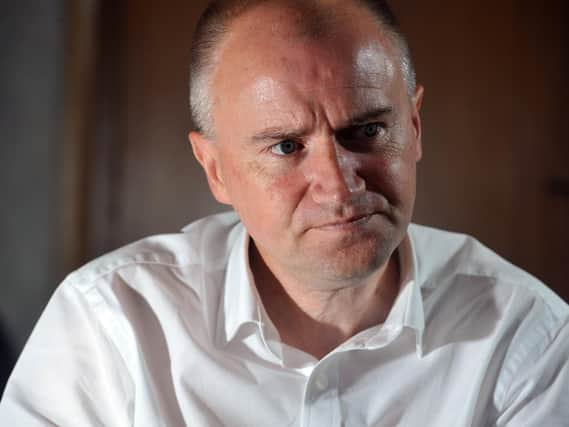'Virus can be beaten if government and local leaders work together', says Leeds council chief executive Tom Riordan


Tom Riordan, who returned to his role at Leeds City Council after two months working on the national test and trace scheme, said a partnership between Whitehall and local leaders was vital to containing the virus during the winter.
But he warned that local councils, who have been left with huge holes in their budgets due to the pandemic, would need more funding from Chancellor Rishi Sunak this autumn to stabilise their finances.
Advertisement
Hide AdAdvertisement
Hide AdBoris Johnson said yesterday that the signs of a second wave of the pandemic were starting to be seen as he indicated quarantine restrictions could be imposed on European countries beyond Spain.
Mr Riordan said that while in some areas of Yorkshire there were "virtually no infections", in others rates remain stubbornly high.
Among those are Bradford and Kirklees, where large numbers of people are not being traced by the national tracing system which sees people hand over details of their recent contacts if they test positive for Covid-19.
In both areas, where the spread is thought to be due to large numbers of people living in the same households, local officials are going door-to-door to make contact with those who can't be reached by the national test and trace schemes.
Advertisement
Hide AdAdvertisement
Hide AdMr Riordan said that in other Yorkshire areas with stubbornly high infection rates, such as Barnsley and Wakefield, many cases were linked to outbreaks at workplaces where co-workers live and travel to work together.
He said: "Councils know their local communities and often if you get a phone call from somebody from a contact centre somewhere it looks like most people are going along with that and they're fine with it but some people, some communities, tend to be a bit more suspicious of national government initiatives at times.
"So the local factor can really help in getting people a bit more confidence that they haven't done anything wrong and they're going to get support if they have to self isolate in some way.
"So I think that combination of the national system being able to get that consistency and reach, but then followed up locally and supported locally is how we're going to really beat the virus to be honest."
Advertisement
Hide AdAdvertisement
Hide AdHe said that he hoped test and trace would be able to keep running throughout the winter to keep down the R-rate showing how quickly the virus is spreading and that if successful it could slow the spread as much as the more dramatic lockdown restrictions on movement.
This is despite the system being abandoned in the early stages of the pandemic in the UK because it lacked the capacity to test enough people.
Mr Riordan said: "When we went through this the first time, everybody will remember that time probably for the rest of their lives.
"The virus spreads so quickly, and almost by stealth, that you didn't have the test and trace capability to keep up with this. And then it had to retreat to just being in hospitals and care homes.
Advertisement
Hide AdAdvertisement
Hide Ad"It's been shown that if you can get test and trace operating at the level that it is now, it can affect the R-rate by about point two, it doesn't sound like a lot but it is a lot. It's the equivalent of some of the really difficult movement restrictions that are put in place so that's the plan and that's where we'll need massively good working between national and local level and also between the NHS and local government as well."
In May local councils in England were given £300m by government to support the test and trace programme and develop tailored outbreak control plans.
Mr Riordan said this had helped town halls carry out local work but that the funding only lasted until March and that more funding would be needed for the next financial year.
The Yorkshire Post reported in May that many of the region's town hall leaders could be forced to effectively declare themselves bankrupt this autumn because of the devastating toll the coronavirus pandemic is taking on their finances.
Advertisement
Hide AdAdvertisement
Hide AdMr Riordan said: "I think as we move through the year though there will be a need to stabilise the local authorities finances more generally, because of the legal duty we have to balance our budget."
Comment Guidelines
National World encourages reader discussion on our stories. User feedback, insights and back-and-forth exchanges add a rich layer of context to reporting. Please review our Community Guidelines before commenting.